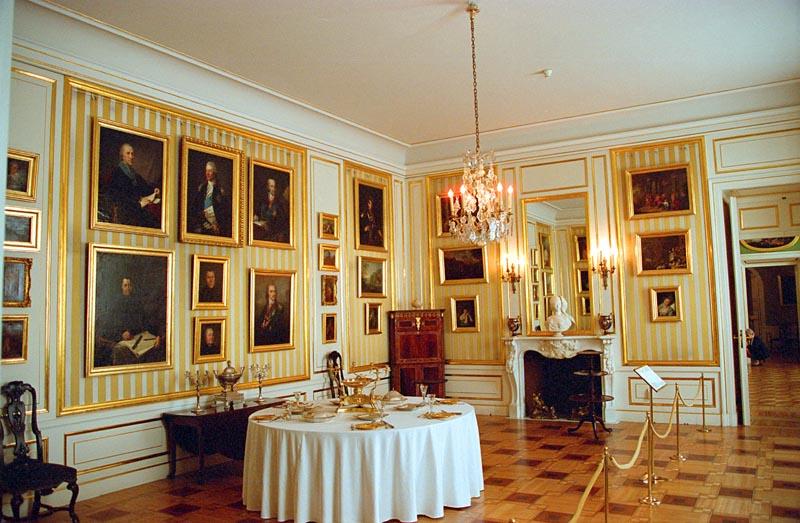Thursday Lunches on:
[Wikipedia]
[Google]
[Amazon]

 Thursday Dinners ( pl, obiady czwartkowe, less commonly translated as Thursday Lunches) were gatherings of artists, intellectuals, architects, politicians and statesmen held by the last King of
Thursday Dinners ( pl, obiady czwartkowe, less commonly translated as Thursday Lunches) were gatherings of artists, intellectuals, architects, politicians and statesmen held by the last King of

 Thursday Dinners ( pl, obiady czwartkowe, less commonly translated as Thursday Lunches) were gatherings of artists, intellectuals, architects, politicians and statesmen held by the last King of
Thursday Dinners ( pl, obiady czwartkowe, less commonly translated as Thursday Lunches) were gatherings of artists, intellectuals, architects, politicians and statesmen held by the last King of Poland
Poland, officially the Republic of Poland, is a country in Central Europe. It is divided into 16 administrative provinces called voivodeships, covering an area of . Poland has a population of over 38 million and is the fifth-most populou ...
, Stanislaus II Augustus during the Enlightenment period in Poland.
History
Stanislaus Augustus Poniatowski was famed as a patron of the arts and learning. It was during his reign that Poland's Age of Enlightenment (already begun in the 1730s–40s), reached its peak. It went into decline with theThird Partition of Poland
The Third Partition of Poland (1795) was the last in a series of the Partitions of Poland–Lithuania and the land of the Polish–Lithuanian Commonwealth among Prussia, the Habsburg monarchy, and the Russian Empire which effectively ended Polis ...
in 1795. During the Age of Enlightenment, Warsaw
Warsaw ( pl, Warszawa, ), officially the Capital City of Warsaw,, abbreviation: ''m.st. Warszawa'' is the capital and largest city of Poland. The metropolis stands on the River Vistula in east-central Poland, and its population is officia ...
was modernised and became a favourite meeting place for notable people in the worlds of art, architecture and literature along with other intellectuals and statesmen. The King invited influential figures of the time to his Thursday Dinners. He founded the School of Chivalry
''Szkoła Rycerska'' ( en, School of Chivalry) or ''Akademia Szlachecka Korpusu Kadetów Jego Królewskiej Mości i Rzeczypospolitej'' (English: ''Nobles' Academy of the Corps of Cadets of His Royal Majesty and the Commonwealth'') was the first st ...
.
The gatherings were usually held in the Royal Castle and in summer at the Palace on the Isle
The Palace on the Isle ( pl, Pałac Na Wyspie), also known as Baths Palace ( pl, Pałac Łazienkowski), is a classicist palace in Warsaw's Royal Baths Park, the city's largest park, occupying over 76 hectares of the city center.
From 1674 the pr ...
in Warsaw, between 1770 and 1784. During the gatherings, which typically lasted three hours and were akin to French salons, the King and his guests discussed literature, art and politics over a light meal. The number of guests varied over the years, with about thirty regulars, including politicians, writers, bibliophiles, military officers of rank and philosophers. Notable guests included:
* Ignacy Krasicki
Ignacy Błażej Franciszek Krasicki (3 February 173514 March 1801), from 1766 Prince-Bishop of Warmia (in German, ''Ermland'') and from 1795 Archbishop of Gniezno (thus, Primate of Poland), was Poland's leading Enlightenment poet"Ignacy Krasic ...
* Franciszek Bohomolec
Franciszek Bohomolec, S.J., Bogoria Coat of Arms (29 January 1720 – 24 April 1784), writing pseudonymously as: ''Daniel Bobinson, Dzisiejkiewicz, F. B., F. B. S. J., Galantecki, J. U. P. Z., Jeden Zakonnik S. J., Jeden Zakonnik Societatis ...
* Adam Naruszewicz
Adam Stanisław Naruszewicz ( lt, Adomas Naruševičius; 20 October 1733 – 8 July 1796) was a Polish-Lithuanian nobleman, poet, historian, dramatist, translator, publicist, Jesuit and Roman Catholic bishop.
Born in a szlachta family, he wen ...
* Ignacy Potocki
Count Roman Ignacy Potocki, generally known as Ignacy Potocki (; 1750–1809), was a Polish nobleman, member of the influential magnate Potocki family, owner of Klementowice and Olesin (near Kurów), a politician, writer, and office holder. H ...
* Stanisław Kostka Potocki
Count Stanisław Kostka Potocki (; November 1755 – 14 September 1821) was a Polish nobleman, politician, writer, public intellectual and patron of the arts.
Life
Potocki was a son of General and starost of Lwów, Eustachy Potocki and Ann ...
* Hugo Kołłątaj
Hugo Stumberg Kołłątaj, also spelled ''Kołłątay'' (pronounced , 1 April 1750 – 28 February 1812), was a prominent Polish constitutional reformer and educationalist, and one of the most prominent figures of the Polish Enlightenment. He s ...
* Jan Śniadecki and Jędrzej Śniadecki
* Stanisław Konarski
* Tomasz Adam Ostrowski
* Józef SzymanowskiKorwin-Szymanowski, Franciszek, ed. ''Józef Szymanowski: Listy Do Starościny Wyszogrodzkiej''. Warsaw: PIW. p. 9. (in Polish)
* Andrzej Zamoyski.
The king also held less well-known Wednesday Dinners, ''Obiady Środowe''. While the guests at the Thursday Dinners were usually writers, poets and artists, the Wednesday Dinners brought together educators, scientists and political activists.
The Thursday Dinners spawned the first Polish literary magazine, ' - "Diversions Pleasurable and Useful", published from 1770 to 1777.
In the 1990s, Warsaw Mayor Paweł Piskorski reinstated the tradition by holding ''Tuesday Breakfasts'' to talk over current issues with leading businessmen and activists.
See also
* List of dining eventsReferences
{{Reflist Polish culture 1770s in Poland Dining events 1780s in Poland